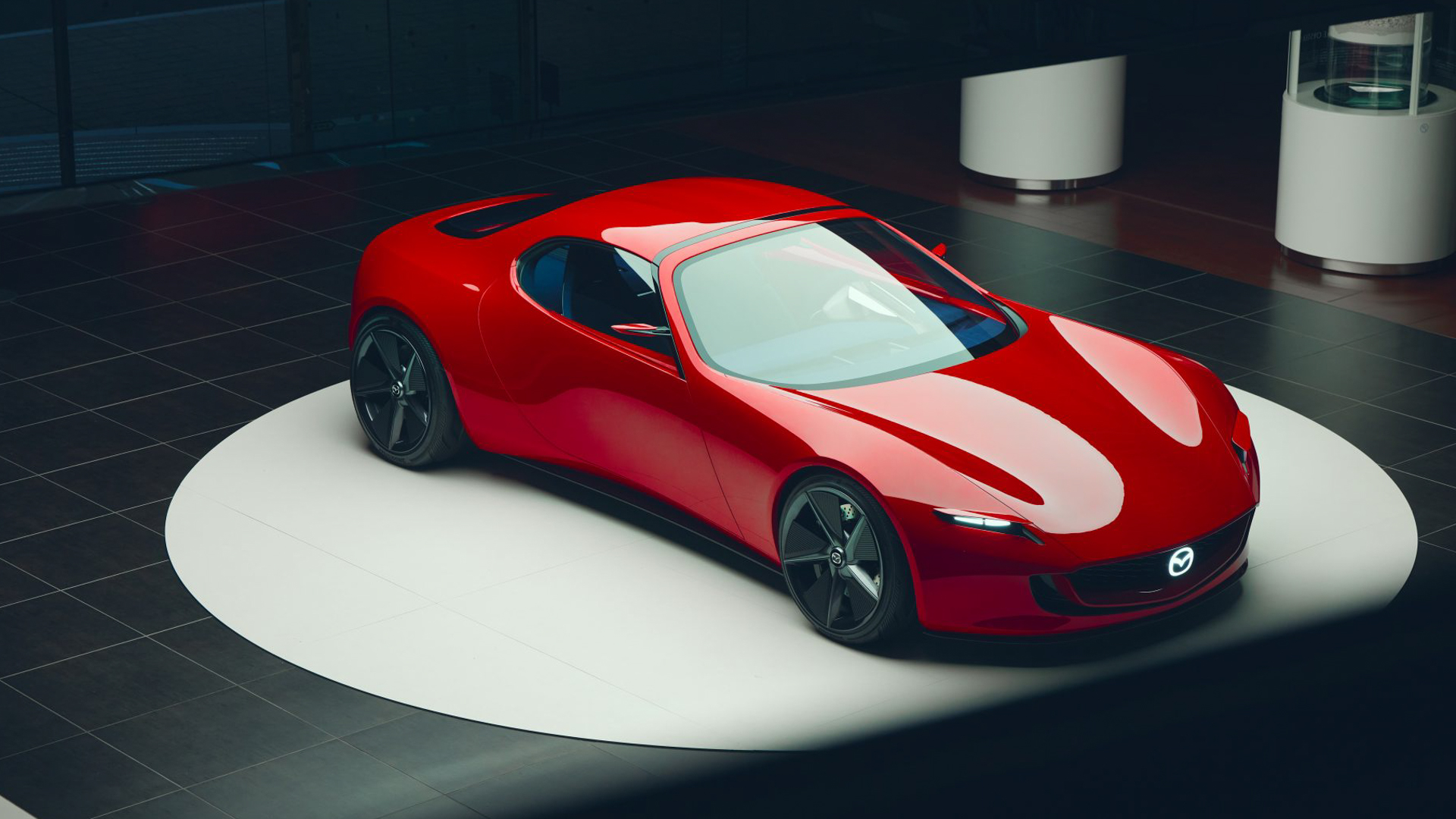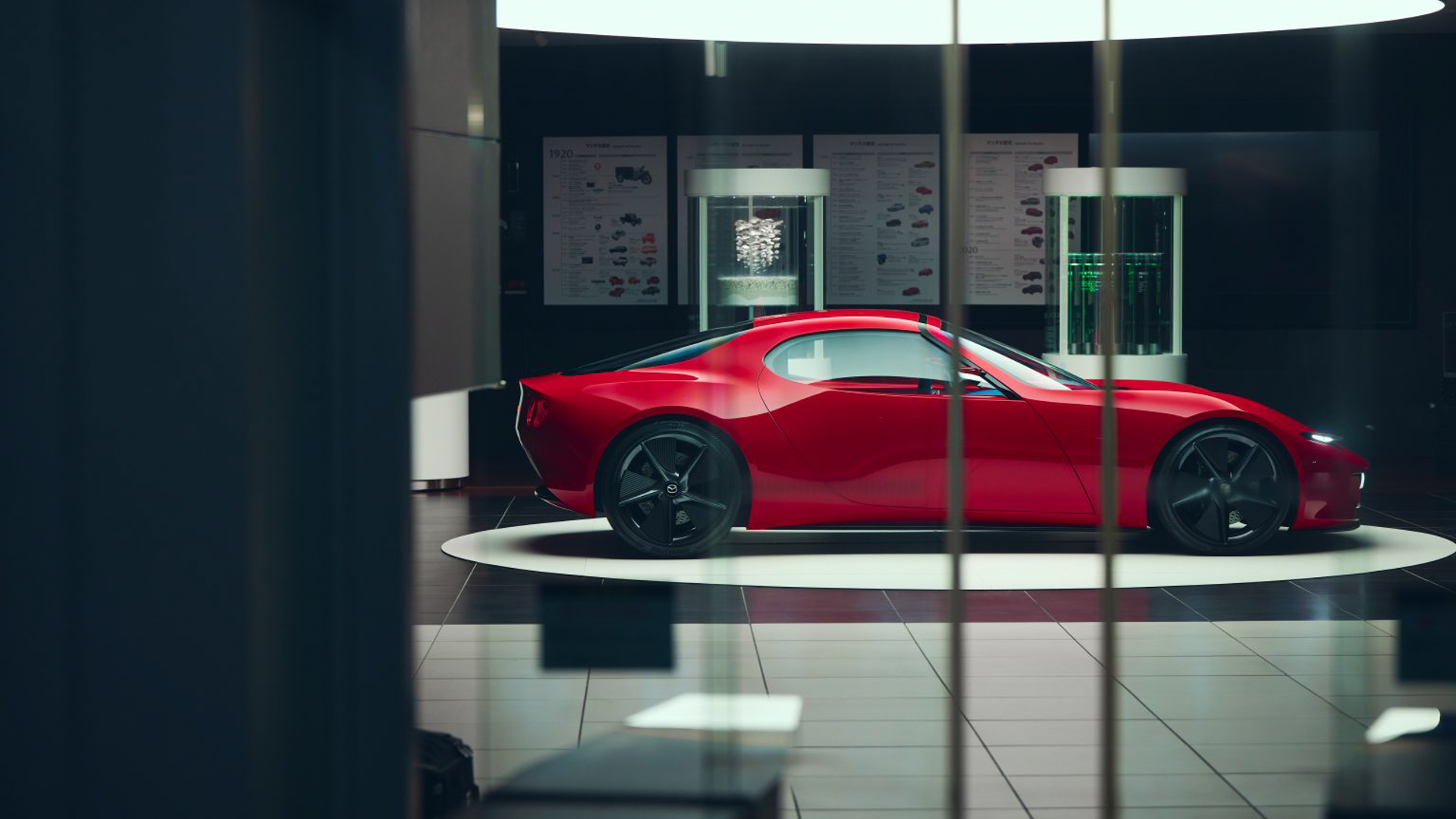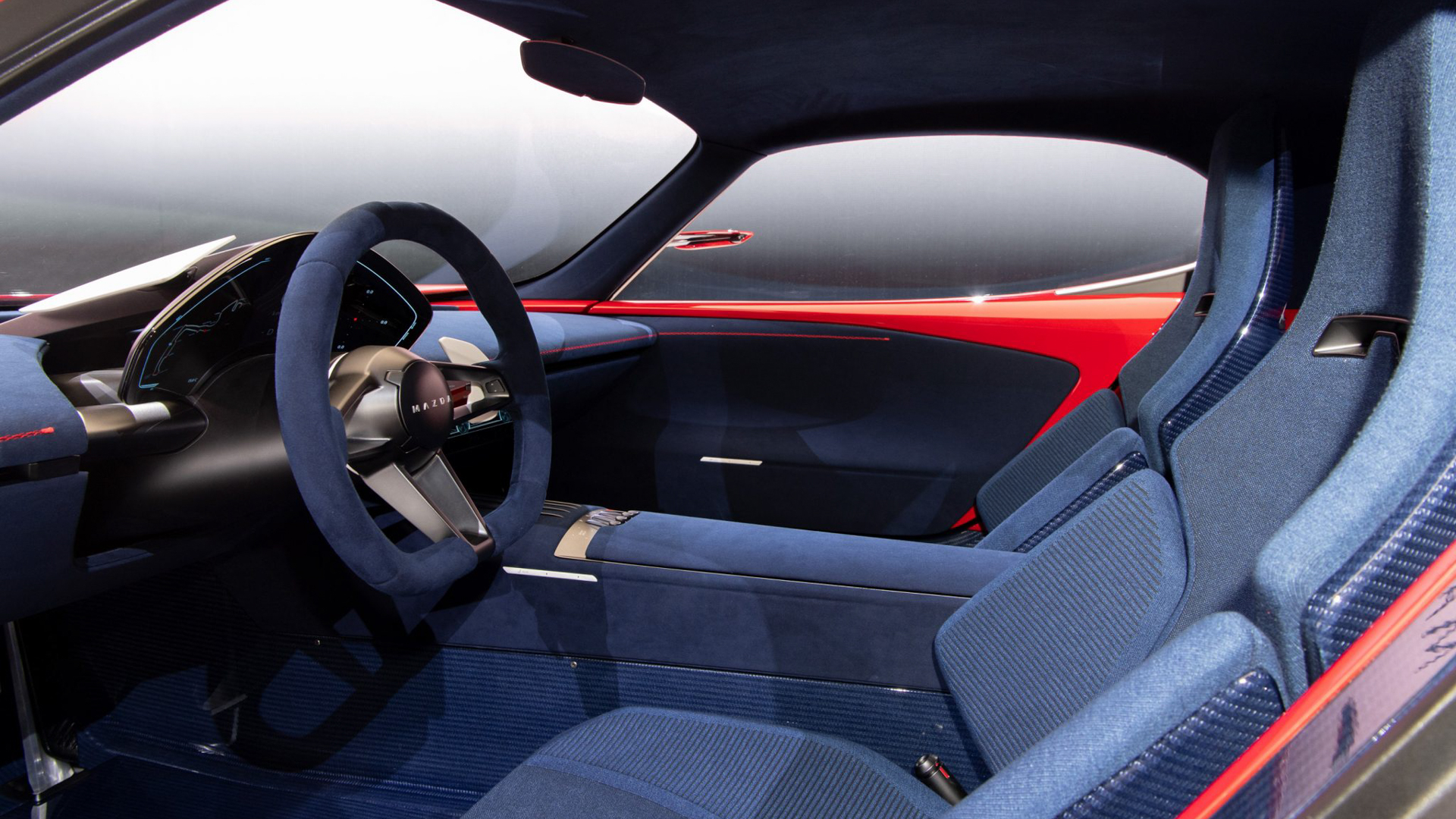
A year ago, Mazda wowed us all with a stunning sports car concept called the Iconic SP – and now it says it’ll become a production car in the not-so-distant future.
That’s according to Mazda’s own Masashi Nakayama, who is the general manager of the Japanese car company’s design studio, and Naohito Saga, Mazda’s executive officer of R&D strategy planning. Nakayam said: “This concept is not just one of those empty show cars. It’s been designed with real intent to turn it into a production model in the not-so-distant future.”
Revealed at the Tokyo motor show in 2023, the Iconic SP is a look at what a future Mazda sports car could look like. Although compact like an MX-5, it could also become a spiritual successor to the RX-7 sports car of the 1990s. It featured a muscular body, a two-seat cabin and Instagram-friendly doors that open vertically.
More interesting than the styling, though, was the proposed powertrain. Instead of a naturally aspirated engine like the current MX-5, or a fully-electric motor-and-battery setup, Mazda suggested the Iconic SP would be powered by a hybrid powertrain that used a rotary engine to generate power, which was then fed to electric motors. Total output was a claimed 370 hp, about double that of the latest MX-5.

Speaking about the prospect of a production version, Saga added: “Standing by the car, you should be able to picture what sort of engine would be housed under the bonnet. The more time you spend looking at it, the more the car will reveal to you."
Explaining how serious Mazda is about making the car a reality, Saga added: “In the development process, everything from position of the doors and tyres, to the length of the vehicle, the seating position of the occupants and visibility was meticulously researched before reaching the final specifications.
“It really shows how we wanted to make it a car that manifests Mazda’s commitment for the future, especially in terms of sustainability and the future role of our rotary engine technology.”
Mazda uses a rotary engine as a range-extender for its MX-30 R-EV, and previously used such a motor on the RX-8 sports car. Also known as a Wankel engines, after creator Felix Wankel, a rotary engine uses a triangular rotor inside an oval-shaped engine housing, instead of traditional pistons.

The Iconic SP concept car was intended to use a two-rotary EV system, which Mazda describes as “highly scalable, running on fuels and generating electricity from carbon-neutral sources.” The company added: “Its compact size, too, allows the Mazda Iconic SP to be housed in a low-profile package akin to a midship sports car, promising an exhilarating driving experience.”
Saga explained how the car could run on a variety of fuels, including sustainable petroleum – where the petrol is created with carbon that is extracted from the atmosphere, rather than from fossil fuels – and even hydrogen, which can be combusted in a similar way to petrol. Saga said how, no matter which carbon-neutral fuel becomes mainstream, the rotary engine can adapt to work.
This means that, according to Mazda, the Iconic SP’s powertrain “has the potential to reduce emissions by up to 90 percent”, from the perspective of the life-time emissions of a vehicle, compared to current petrol vehicles.







